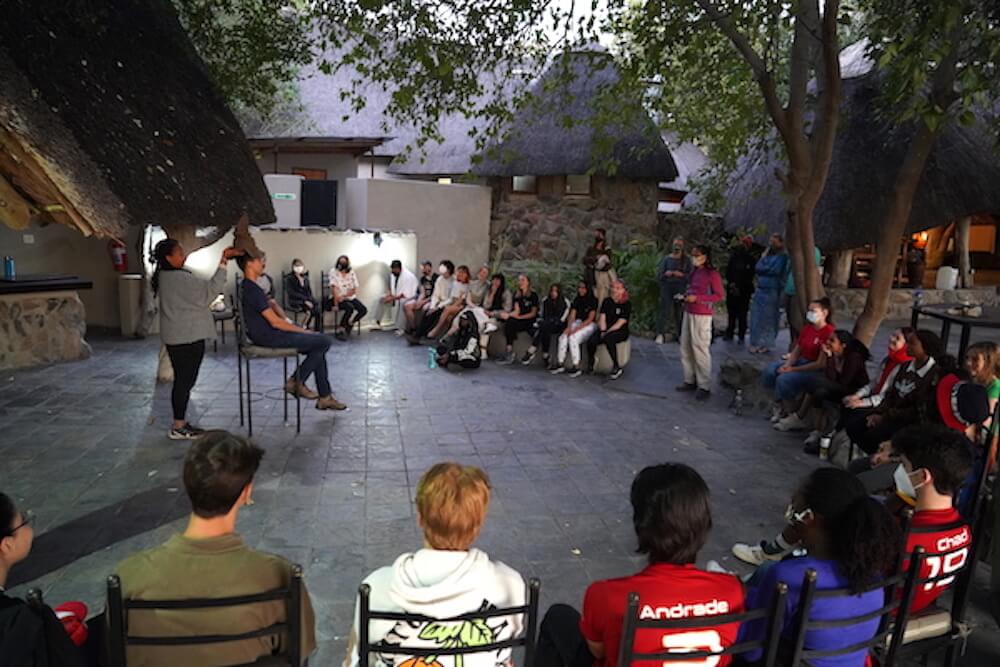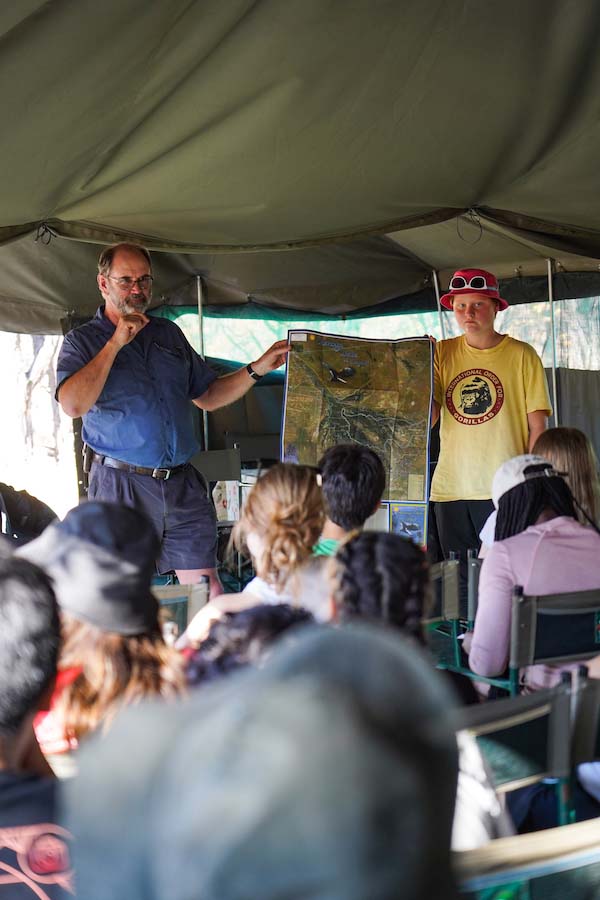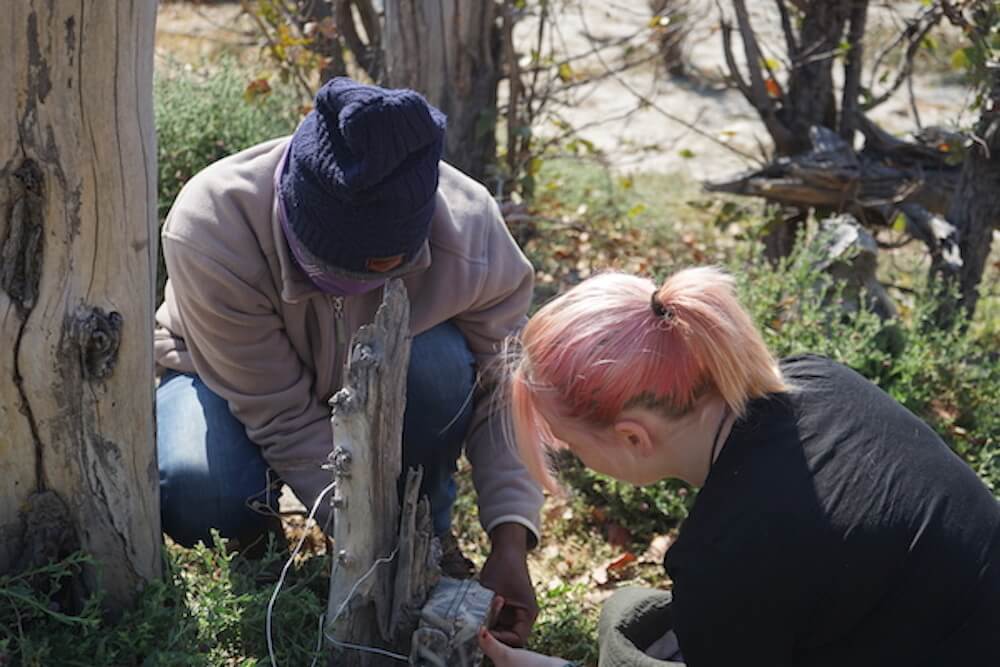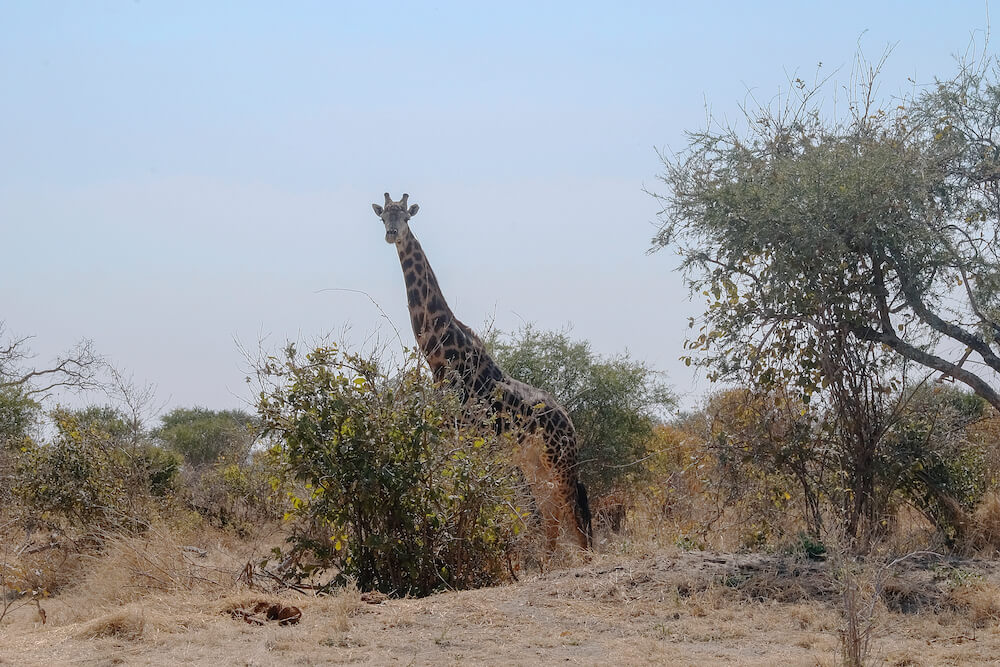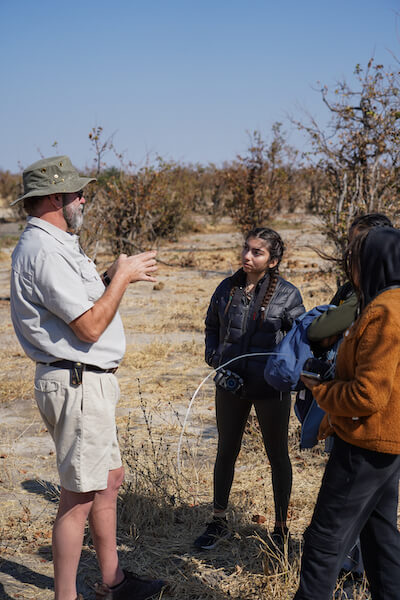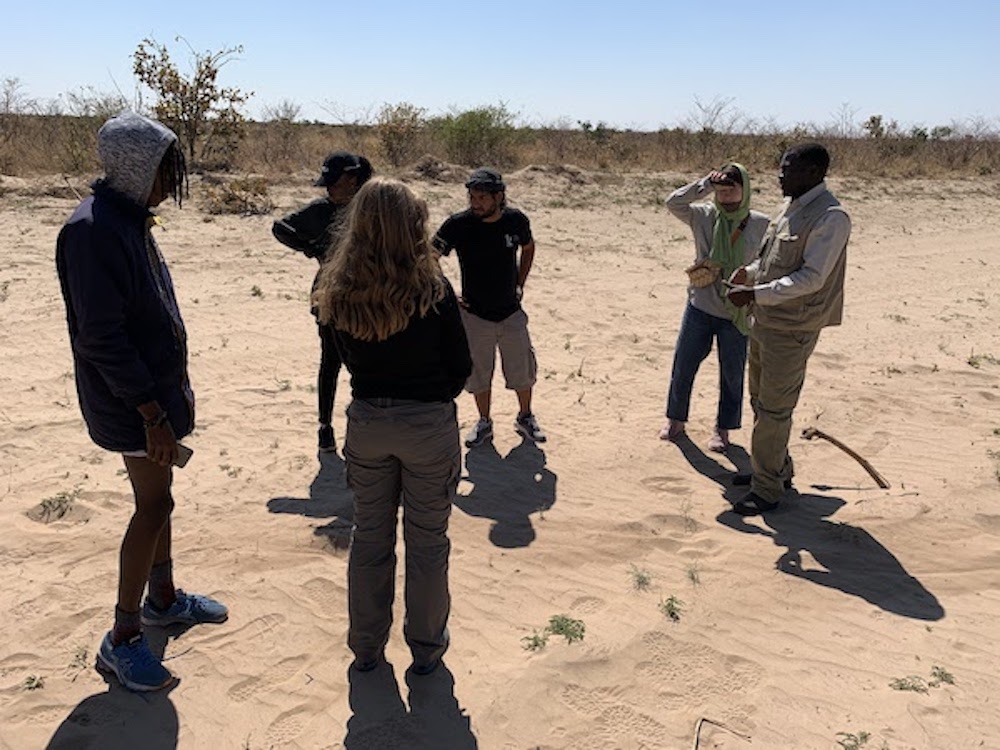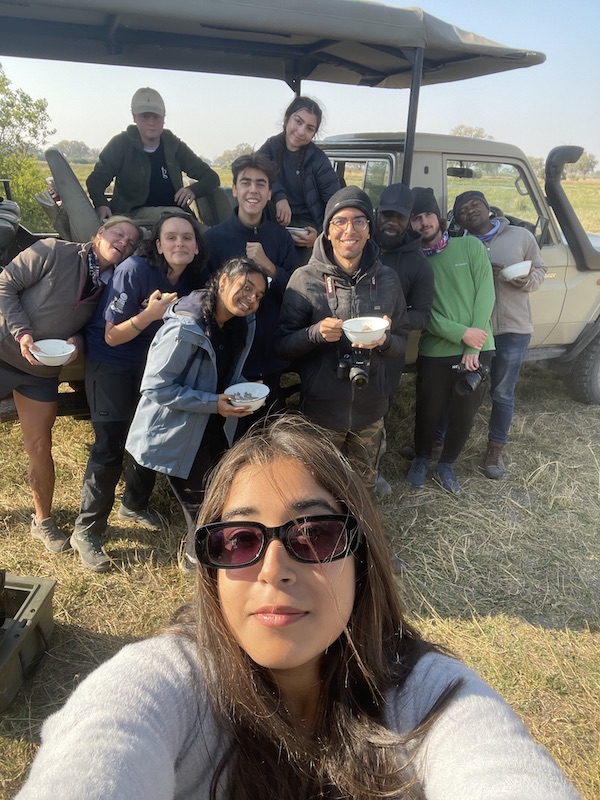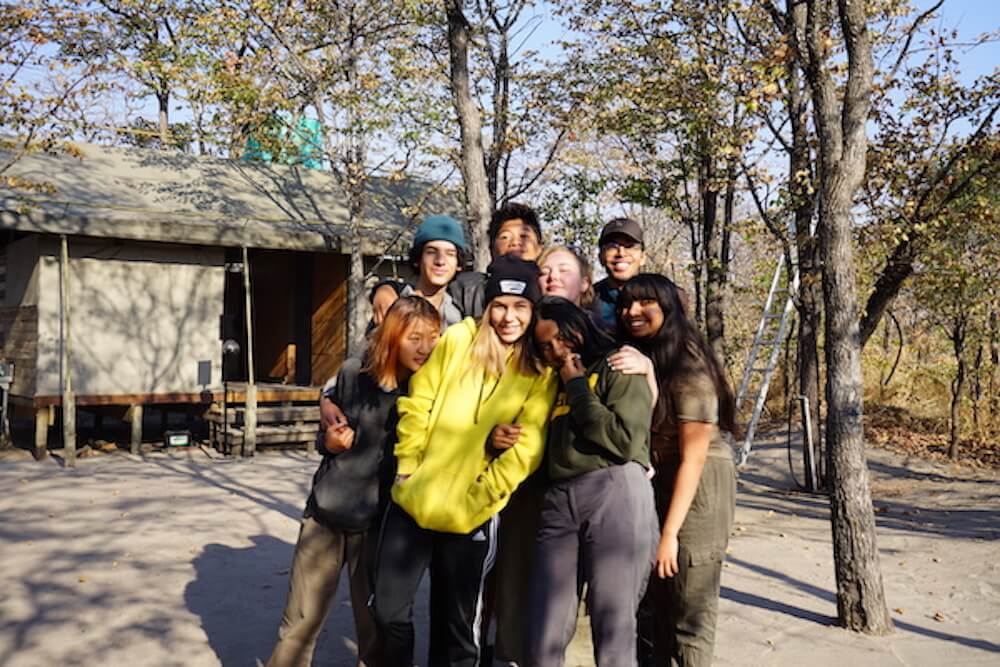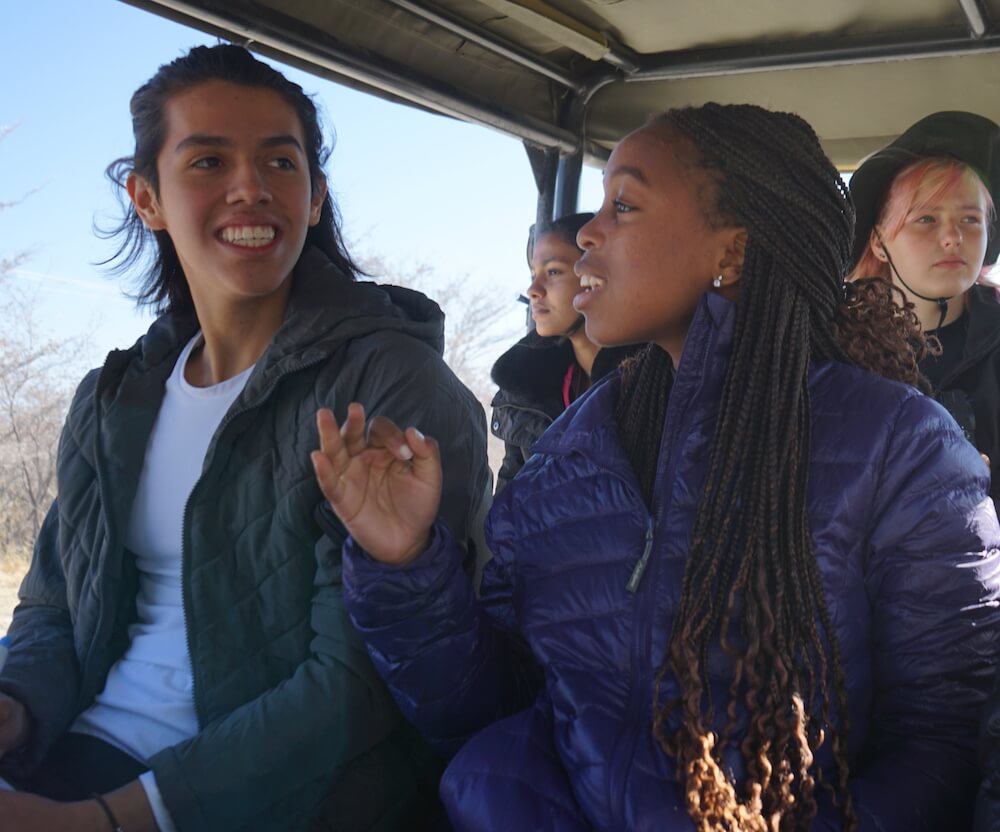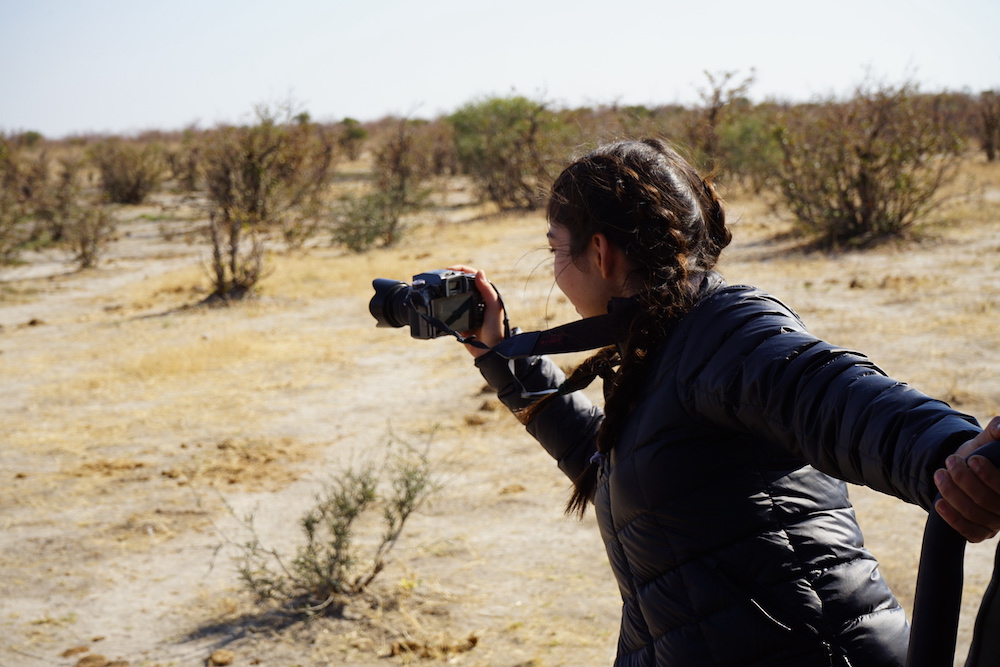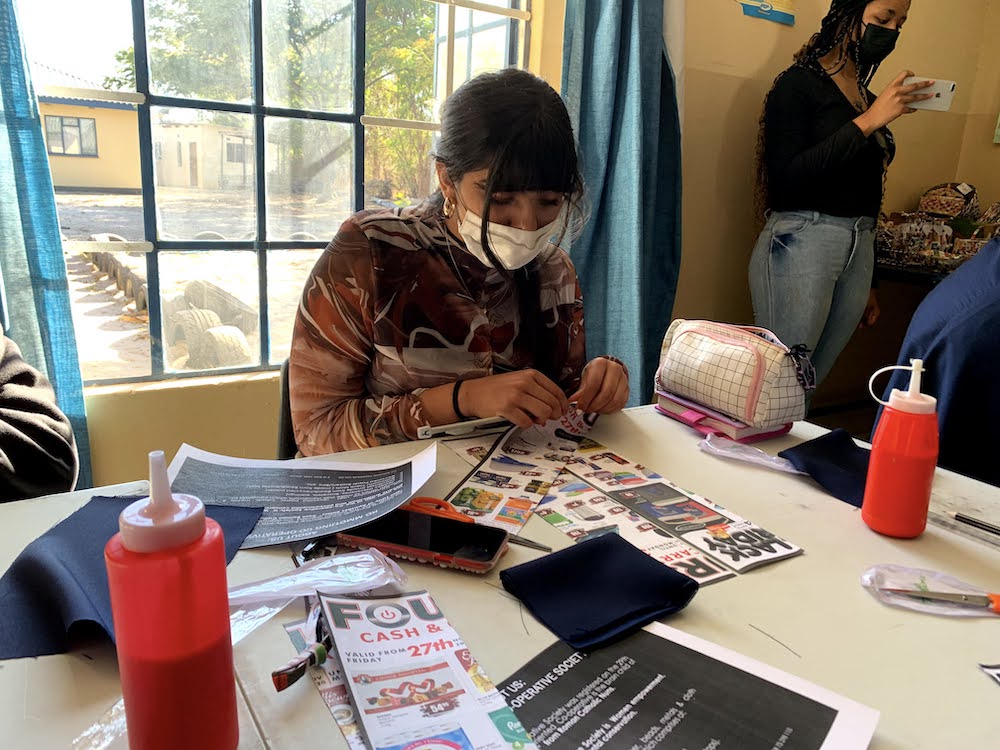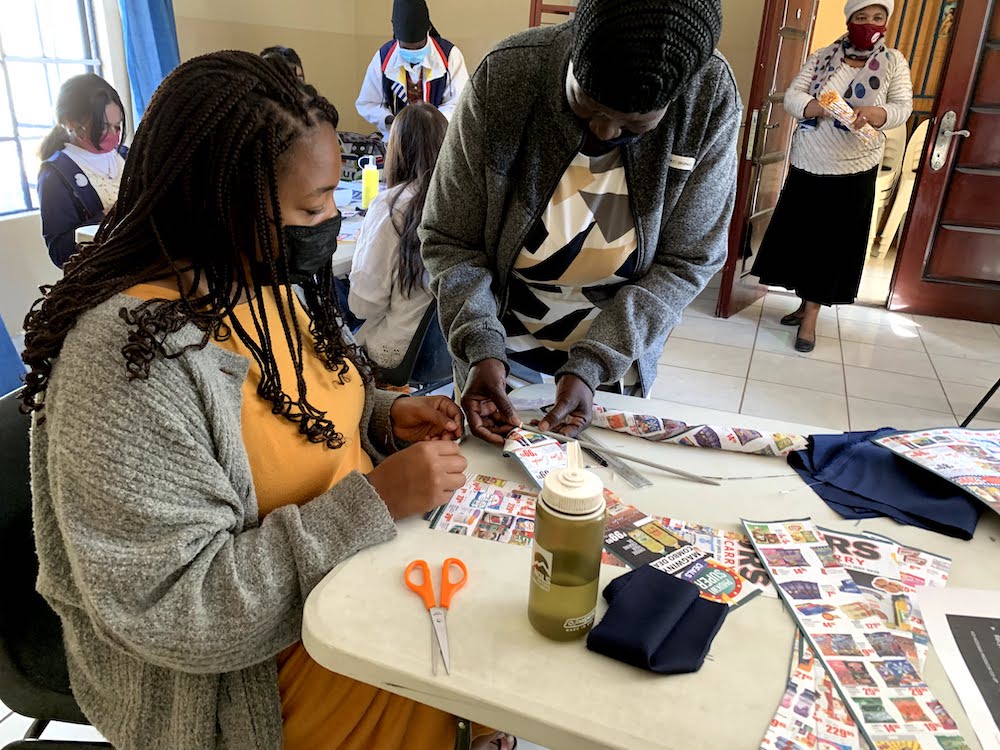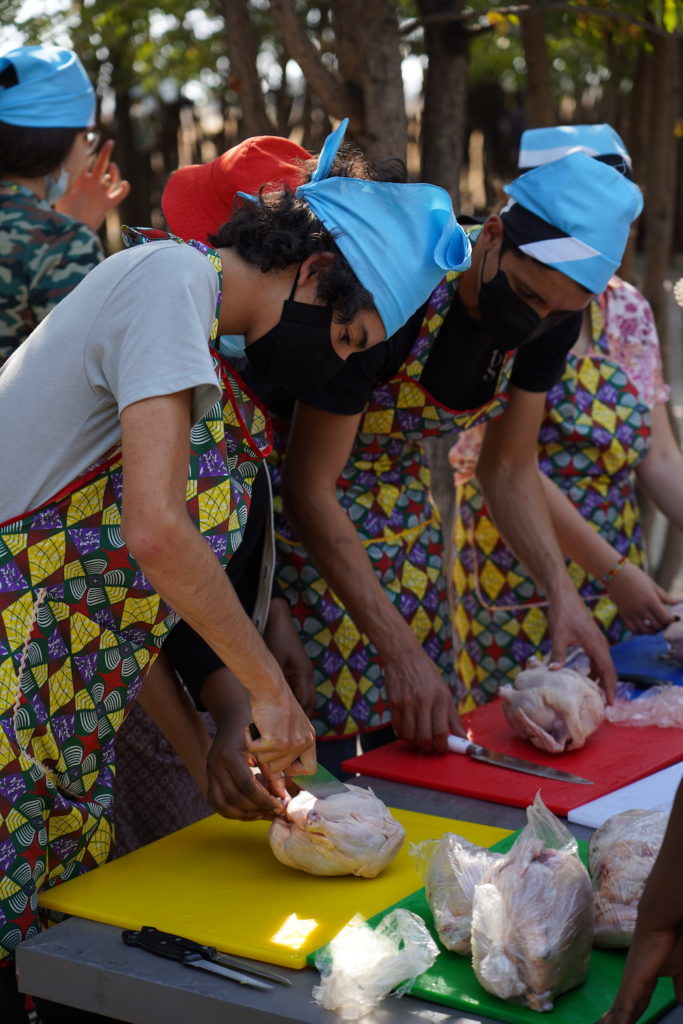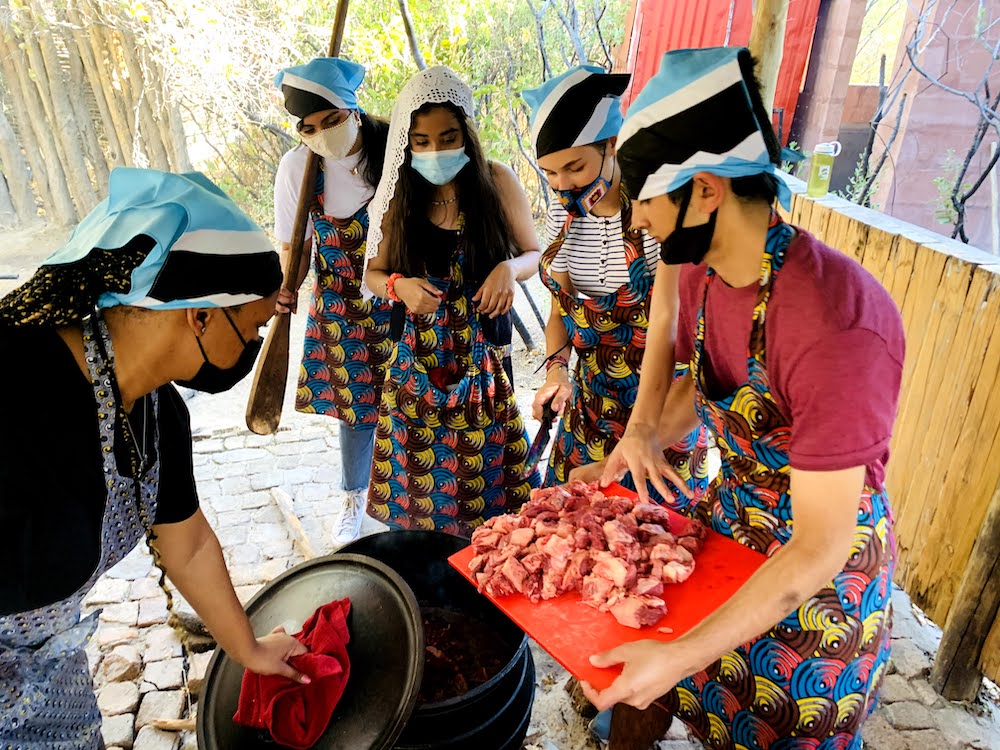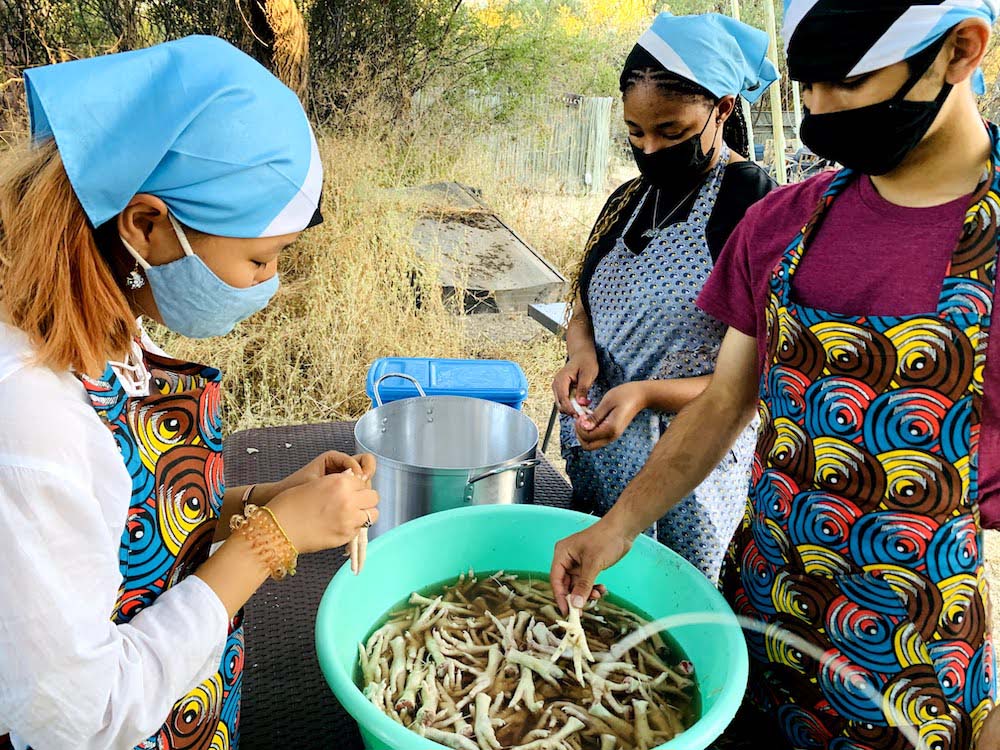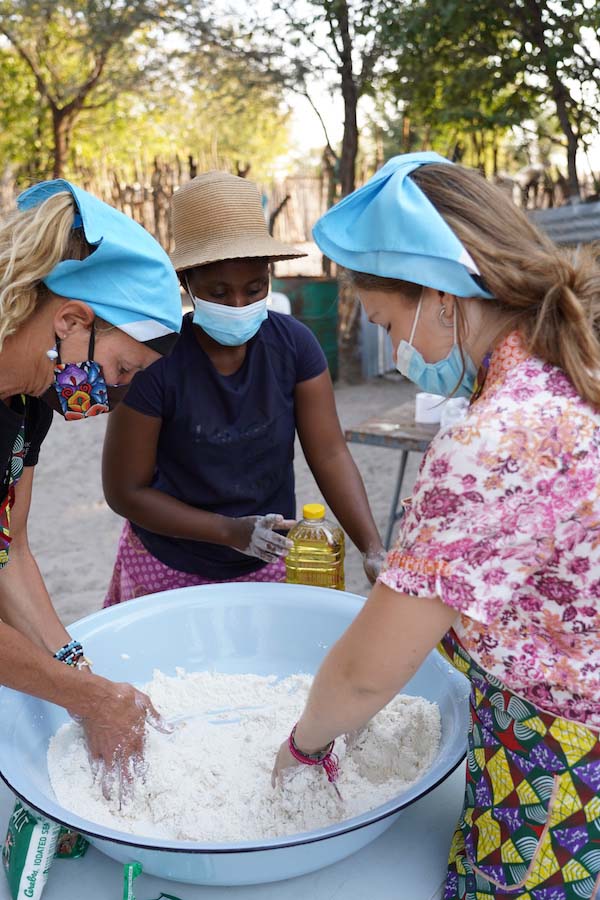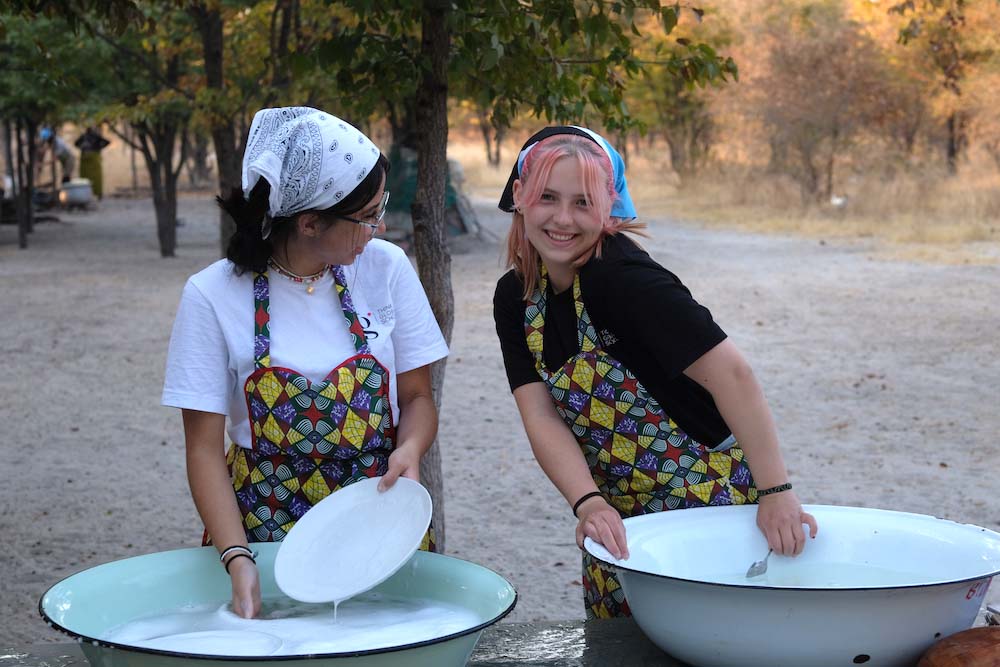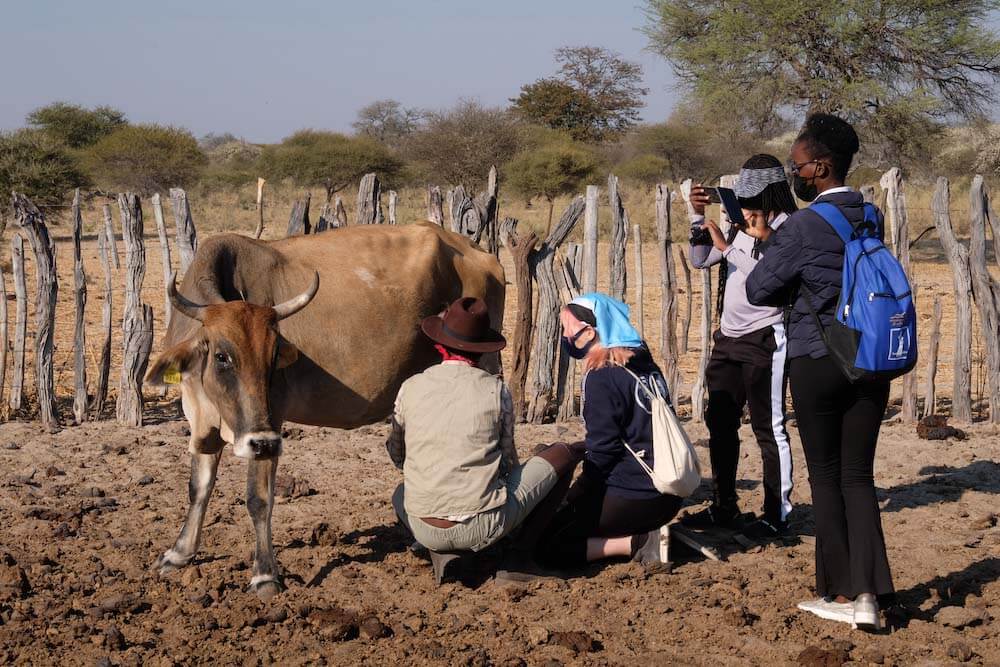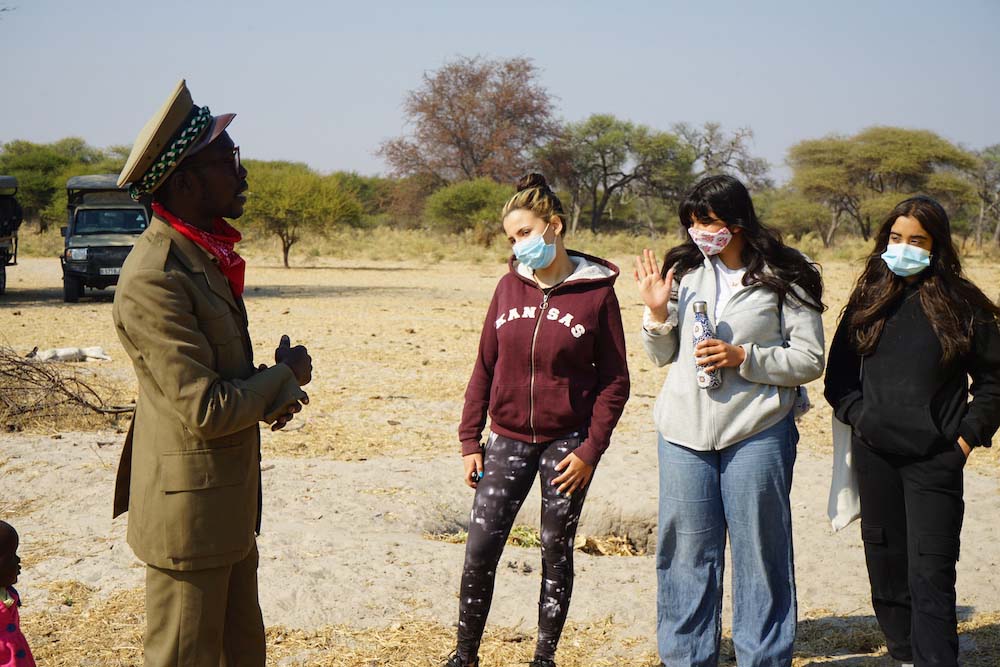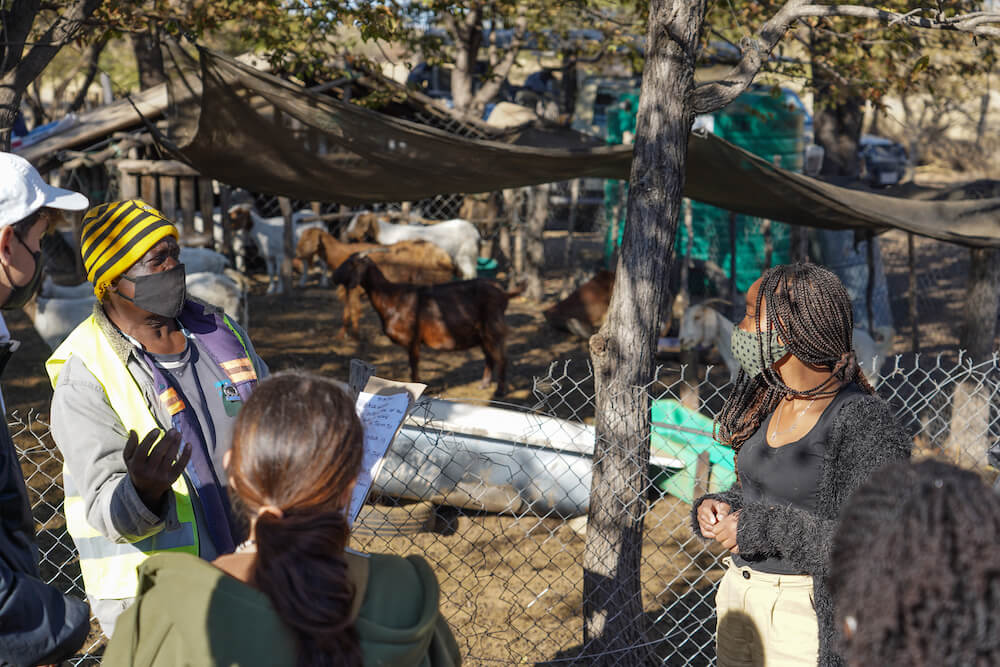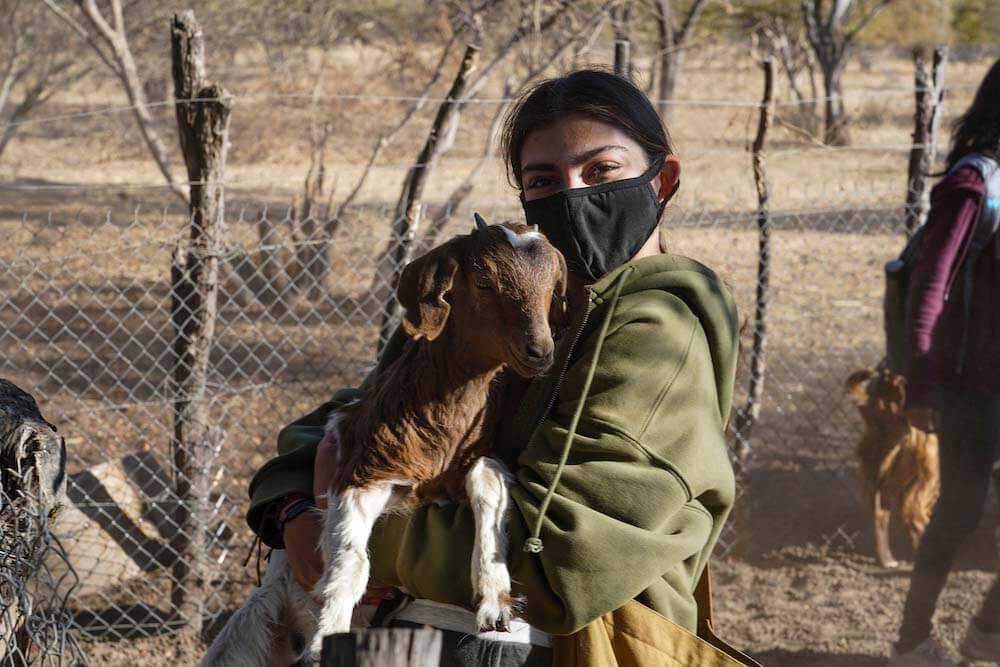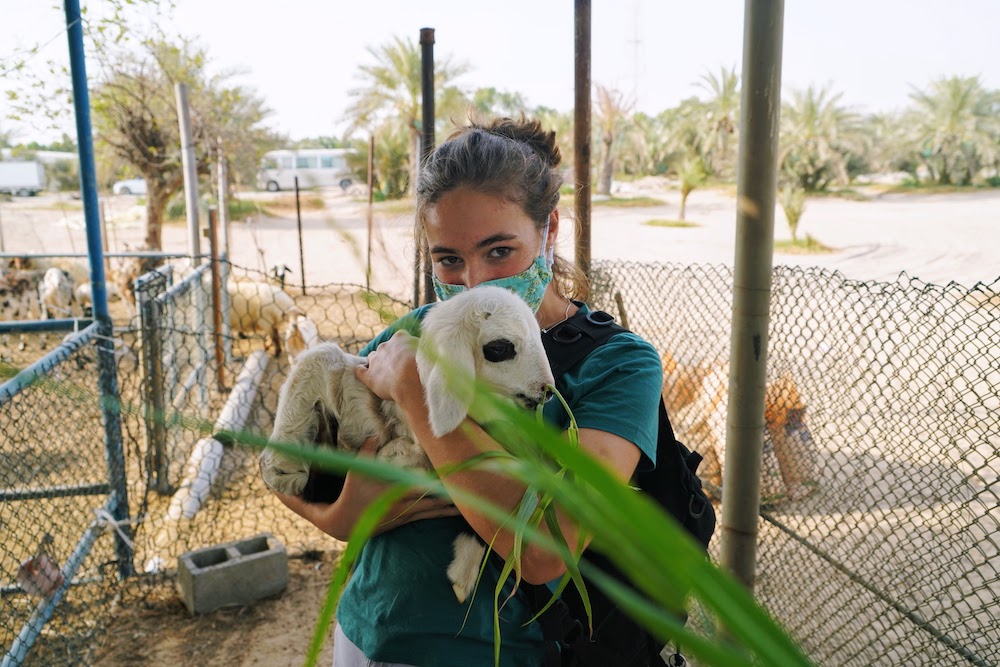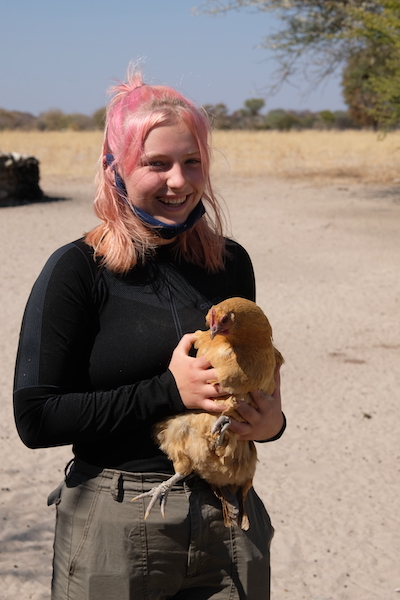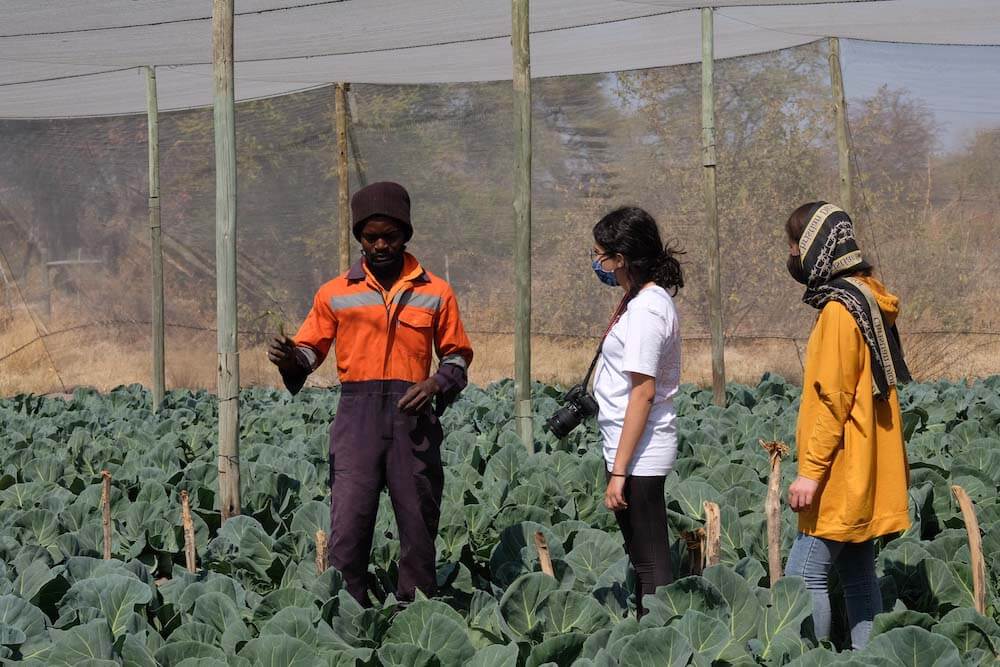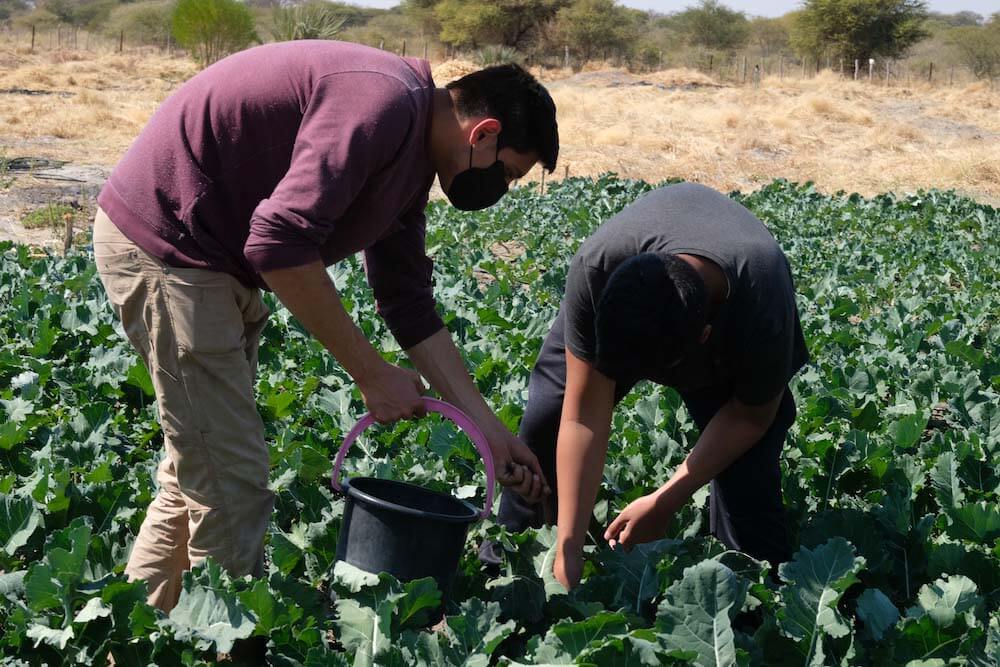1) Hi Nada, can you tell us what you've been up to since graduating from THINK Global School in 2022? Since graduating in 2022, I've been pursuing a passion I found while at TGS, sustainability, and I am currently majoring in engineering in renewable energy systems at Al Akhawayn University, in Ifrane, Morocco. But there is way more than that! I've had a chance also to explore the world of...
Read MoreSo many things happened here in Botswana, and so many more things were learned from the people and the places around us. Personally, I was more inclined towards the biodiversity and nature aspect of the term, especially the Rite of Passage and the weXplore, but everything was absolutely amazing! -Class of 2023 Student Camille A.
A new school year is always an exciting affair, but the start of our 2021-22 school year came with a bit of extra added meaning: Following five terms of remote learning due to the ongoing COVID-19 pandemic, it represented our return to in-person learning. For our CM1 students, that meant flying to Botswana to experience life in the Okavango Delta.
South Africa’s neighbor to the north, landlocked Botswana is renowned for its unique ecosystems and opportunities to view a variety of endangered wildlife species in a conservation-friendly setting. This school year represents our third visit to Botswana (we also held terms there in 2017 and 2018), and our students had the opportunity to participate in similar conservation projects as those who preceded them.
Arrival and Rite of Passage
After touching down in the city of Maun, students headed north to join up with their classmates at the lodge which served as our residence and learning space.
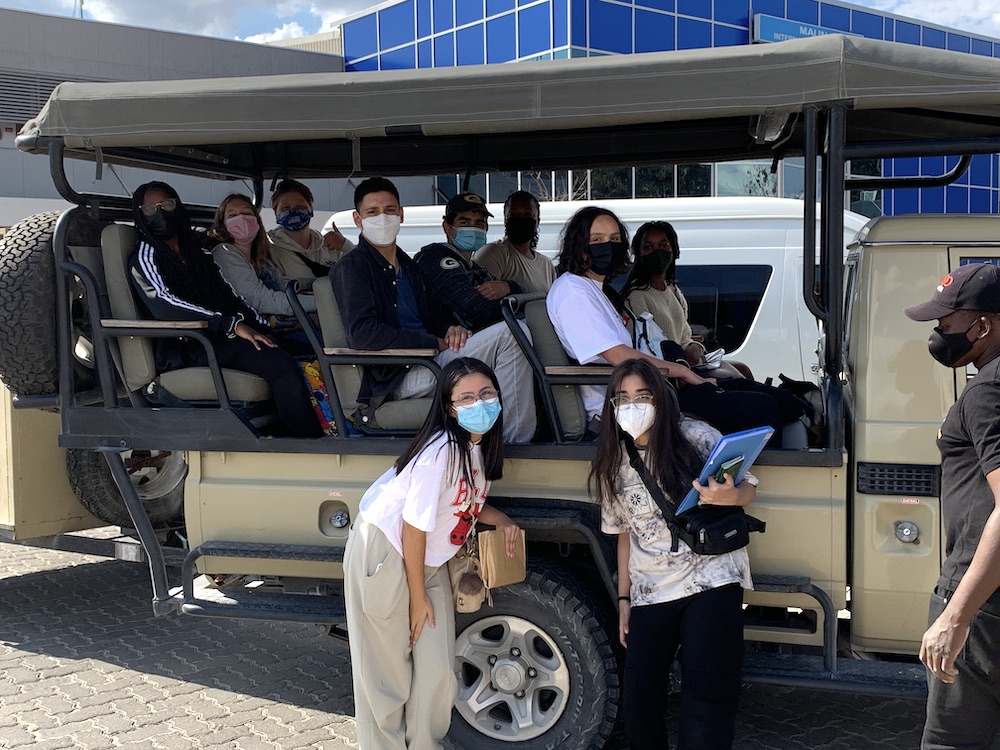
Students arrive at Maun Airport
Located along the banks of the Thamakalane River and adjacent to the Okavango Delta, our host facilities were largely open-air — a considerable consideration as we resumed learning in person.
Comfortable but sparse, the residence represented an opportunity to step away from the trappings of modern life and instead focus on forming new friendships, embracing TGS’s core values, and spotting the occasional hippo nestled among the river reeds.
After a three-day quarantine, one of many precautions our community took this term, students began engaging in a variety of community events to celebrate their time back together.
Sorting Hat Ceremony
One such activity is the sorting hat ceremony. Like students at the fictional Hogwarts School of Witchcraft and Wizardry, TGS students participate in a sorting hat ceremony at the start of the year to find out which advisory group they will be assigned to. This year’s sorting hat ceremony featured a twist: advisory groups were re-named with a bit of inspiration from endangered species around the world. This year’s advisory groups are the Araras, Jaguars, Vaquitas, and Dugongs.
Rite of Passage
One of the first important activities students undertake at THINK Global School is embarking on a Rite of Passage. The Rite of Passage introduces students to our community culture by having them embark on a rigorous multi-day experience filled with teambuilding activities. During this shared time together, they learn what it means to care for one another and uphold the tenets of TGS. Additionally, the Rite of Passage is tech-free, allowing students the rare opportunity to separate themselves from online clutter and instead focus on one another.
In previous years the Rite of Passage has been carried out only by new students; however, due to the 2020-21 school year being conducted virtually, this year’s Rite of Passage was an experience undertaken by the entire CM1 cohort.
The Rite of Passage was one of the most intense experiences this term. It allowed me to feel closer to my advisory and actually form real bonds while trying to survive in the wilderness. It was definitely a challenge to fight my fear of the unknown, sleep in the middle of the savanna, and have an onion and a potato to eat, but at the same time, getting out of my comfort zone allowed me to realize that I was able to live an experience like that and enjoy it. -Class of 2022 Student Nada K.
When students arrive at TGS, they often haven’t had their beliefs challenged or their physical limits tested. The Rite of Passage looks to change that by exposing them to firsthand experiences, mentored learning, practical testing, enacted rituals, and community celebrations.
Each of the above opportunities incorporates holistic health, self-awareness, effective communication, environmental stewardship, and social responsibility, all of which play an integral role in our whole-child approach to education.
For this year’s Rite of Passage, students developed their leadership skills in the Okavango Delta by practicing effective communication, demonstrating self-awareness, setting clear goals, and serving in a variety of roles. Likewise, they bolstered their wilderness skills by learning to set up shelter, organize and pack gear, build and maintain a fire, and identify predator threats and oversee camp security.
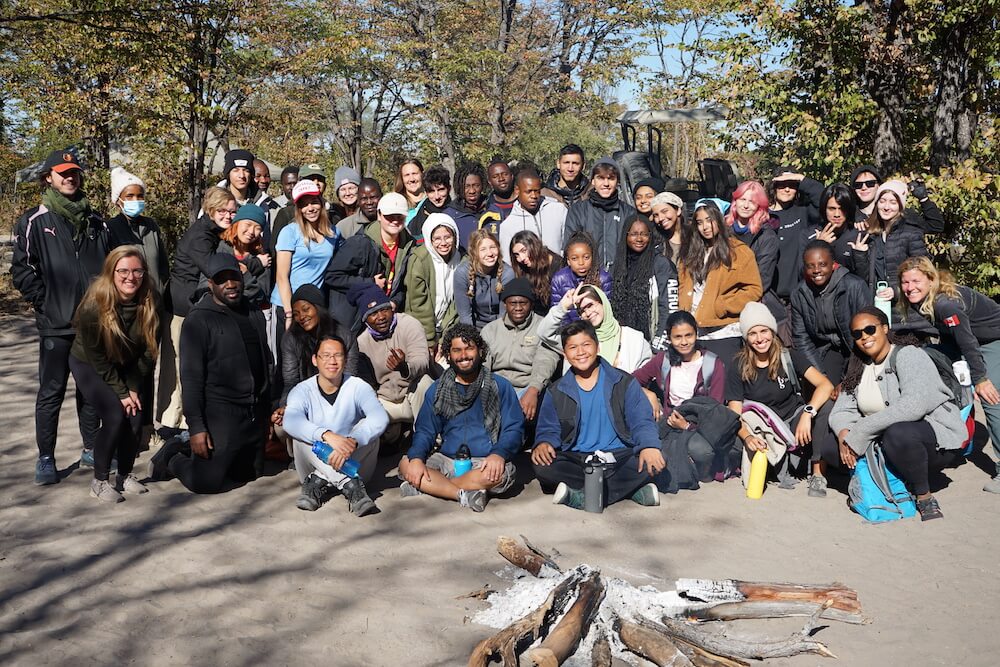
The CM1 community complete their rite of passage
For students who’d never even been camping before the Rite of Passage, their experiences served in stark contrast to their usual comfortable surroundings. Through their experiences, though, they learned how to assess their strengths and weaknesses, lean on the community, and foster self-worth — all of which will be vital as they conduct projects of real-world significance.
A Look At Our Project-based Learning Module
Instead of simply attending classes and listening to teachers lecture, students at THINK Global School learn through firsthand experiences and a curriculum rooted in project-based learning.
The Changemaker Curriculum places a heavy emphasis on skill mastery, student autonomy, and finding purpose. By maintaining a student-driven philosophy, we can better connect with the places we visit and the people we meet. If you are unfamiliar with project-based learning, you can learn more about it here.
This term, students learned about Botswana’s place in the world by participating in the MAINANE project module. The module presented an opportunity to learn firsthand about Batswana cultural beliefs, economic factors, and political systems. Additionally, students worked in conjunction with local conservation experts to understand Batswana conservation and animal tracking practices firsthand.
At the start of the module, students were tasked with answering the following driving question: How can I demonstrate my learning and understanding of Batswana culture and society through storytelling?
During the online lead-up to the term and throughout their time in Botswana, students engaged in various lessons, excursions, and activities geared towards helping them answer it.
weXplore
At least once per term, we suspend our schedule and hit the road to experience our host country through deep immersion and activities. For their Botswana weXplore, our CM1 students went offline and back into the wilderness to learn firsthand about conservation techniques in the Okavango Delta.
Due to its largely intact wetland system, the Okavango Delta is recognized as a world heritage site, and it is home to some of the world’s most endangered species, including hyenas, zebras, water buffalos, African wild dogs, and lions. Alongside the opportunity to spot these rare creatures, CM1 students learned about the relationship maintained in this delicate ecosystem between humans, wildlife, and the natural environment.
The weXplore proved to be a perfect demonstration of skill mastery in action. When our students first arrived at camp, they were novices when it came to setting transects and placing cameras next to pans of water, two conservation techniques used to measure animal activity in the area.
Through practice and advice from local guides and experts, our students quickly progressed in employing these techniques. By the end of the weXplore, they could quickly identify a number of birds, trees, and animal droppings.
My most vivid and surprising moment for this term was my time during weXplore. These days were perhaps my favorite out of the entire term. Seeing the animals was an unreal experience and it is something that I will never forget. I really enjoyed learning about the tracks, the way animals behave, and more. Botswana was such a unique term I will never forget. -Seckhen A.
While the days were long and busy (activities typically started at 5 am!), the community still found time to relax, have some fun, and get to know more about each other and our local counterparts. Evenings were spent around the campfire, singing songs, telling stories, and learning a bit about astronomy and the night sky. It’s no wonder that the weXplore is usually our students’ favorite part of their term.
Exploring Aspects of Batswana Culture
A particular focus during our time in Botswana was exploring various aspects of the country’s culture. Botswana is home to eight major tribal groupings, each of whom have maintained their own unique traditions, values, and beliefs for centuries.
During our time in-country, most of our cultural explorations focused on the practices of the Tswana people, who constitute 60% of Botswana’s population.
One of the main ways students learned about Tswana traditions was by spending time with Bonty Botumile, an author living in Maun who also worked with our students during our two previous terms in Botswana.
Bonty believes strongly in culture, traditions, and the power of oral storytelling, and she has dedicated her life to preserving and teaching all three. As a successful Batswana author, Bonty was also able to share her own skills and techniques for writing and storytelling, including how to employ character development, story structure, story chronology, making connections, and filling gaps.
Besides learning how to write and tell a story, students also spent time with Bonty and other local community members crafting, singing, dancing, and cooking — each a hallmark of Tswana society in its own way.
Crafting
To learn about crafting in Botswana, our students visited a local church where they met with a Catholic cooperative society. The society’s main aim is “women empowerment, poverty eradication, and environmental conservation.” So rather than simply hand out donations, the cooperative teaches locals how to be self-sufficient.
Operating under the motto “Turning trash to treasure,” the sisters running the event taught our students the techniques used to create jewelry from recycled newspapers. While our students were fledglings at the paper mache design, they were uniformly satisfied with their finished pieces and highly enjoyed the experience.
The session provided another example of how Botswana’s locals keep traditions alive while evolving simultaneously — in this instance, through the recycled materials used.
Cooking
During their time in Botswana, each student had the opportunity to help cook a traditional Tswana meal. They learned about the simple seasonings like salt and oil that went into each dish and helped prepare favorites like seswaa (beef on the bone), chicken feet, porridge, bean stew, pumpkin, and kale.
Like all aspects of the term, the cooking lessons shone a light on Botswana’s shifting cultural dynamic. Whereas the process of cooking meals used to be a festive affair where families would catch up and share stories, as the country inches towards modernity and fast food and prepackaged meals become more widespread, the extended meal preps are becoming a thing of the past.
As they enjoyed the meal they prepared from scratch, students considered the following: Since food plays such an oversized role in Batswana culture, how can modern families balance tradition with convenience?
Rhythm and Melodies: Traditional Dancing and Singing
Another tradition students had the opportunity to participate in was engaging in songs, music, and dance. Through these cultural experiences, students learned about the strong linkages song and dance hold within Batswana culture, and that they are often used to evoke emotion and feelings of joy.
For their music-based experience, students donned traditional Batswana attire and learned how to make drums, shakers, and clappers out of recycled materials. As they shook their hips and stamped their feet, practicing the traditional call and response technique common in Batswana music, students were able to appreciate the moment and have fun.
Exploring Botswana’s Ties to Agriculture
Although the majority of Botswana is covered by the semi-arid Kalahari desert, where farming is impossible, agriculture still plays a critical role in Botswana’s economy and the lives of those who sustain themselves off of it.
Like the rest of the world, Botswana is undergoing changes to its delicate ecosystems. Sadly, many of those who depend on the land for a living lack the resources to combat it. This theme, that we are all subject to the environments we find ourselves in, played a major role in our students’ learning experiences this term.
Through a series of field experiences, students learned firsthand about the business of agriculture and how farms are successfully run in the areas surrounding the Okavango Delta, despite climate and wildlife challenges in the area.
Here’s a look at three particular excursions that helped shape our students’ perspectives on Botswana.
Animal Farm Experience
During this excursion, students visited a rural cattle farm where they learned firsthand from the family operating it about their livelihood and daily Burundi traditions and customs.
Cattle farming remains the most profitable of agricultural methods in Botswana. During their time on the farm, students got to milk cows, churn butter, and really get a hands-on feel for how traditions are maintained here. They learned how vital the self-sustaining aspect of Burundi culture is and how every part of the cattle is used by the farmers, including the dung.
Notable to the students was the German-inspired uniform that their guide Israel, an elder, wore. Israel explained that the German soldiers originally wore the uniform when they captured Botswana in the early twentieth century. Now, however, the Burundi people wear the uniform as a symbol of taking it back — that the Germans don’t own them.
The visit to the animal farm was an incredible experience. It was like a trip back in time to traditional Botswana, where we had the chance to witness with our own eyes how some people still keep their culture alive and so well preserved in the modern world. -Class of 2024 Student Helena F.
This experience in particular hammered home how content Israel and others maintaining this farming lifestyle are with their lives. You can still find contentment by performing simple work in modern times. Several students remarked that this came as a bit of a surprise, but it was a positive change in preconceived notions for them — one of the reasons we really focus on learning firsthand in the world.
Traditional Agriculture and Goat/Chicken Farming
Following their visit to the animal farm, CM1 students visited another local farm to learn more about traditional farming techniques in Botswana. They met with the three-person team who maintain the farm and learned about how crops are grown in Botswana sans pesticides and fertilizers, how the seasons affect them, and about the demand for crops grown organically.
The small farm they visited can produce up to 33,000 kilos of produce per month — a testament to the tenaciousness of the family running it, who were more than happy to share their story with our community. It was also an excellent opportunity to reflect on where the food our students eat comes from.
Of particular appeal to many students was the opportunity to interact with the goats. Students escorted babies to their mothers, checked for illnesses, and gave them various medicines — obviously squeezing in a cuddle here and there.
One thing I found particularly interesting was that this lifestyle – a farm where most of the produce is used to feed yourself, and only some is sold, is a popular retirement job for Batswana. The reason they need to do this is that they have not been educated on how to save, invest, and use other tactics to live in ease in retirement. -Class of 2024 Student Noah D.
Another activity was riding around the farm and learning about the hazards it faces, including droughts, wildfires, and wildlife such as elephants eating the crops and damaging the land.
At the conclusion of their tour, students fed chickens, applied manure across the farm, and harvested spinach to make a salad with back at the lodge.
Commercial Crop Farming
The third agriculture-themed excursion students took was to a commercial agricultural farm called Fantasia. Whereas most farms in Botswana are maintained using traditional methods and are often mainly for self-sustenance, Fantasia, like other commercial farms in Botswana, uses more modern techniques to produce fruits and vegetables worthy of being sold in grocery stores.
Irrigation systems, germination rooms, and fertilizers were all in use here, and the healthy crops — even amid the dry season — stood in stark contrast to the withered produce seen elsewhere.
The main takeaway from this visit was that a bit of ingenuity goes a long way. Irrigation systems aren’t the norm in the Maun and the Okavango Delta regions, but drawing water from the river like they do at Fantasia allows crops to grow year-round.
The visit was an excellent opportunity for students to ponder the future of commercial agriculture in Botswana and whether its scalability and adaptation are feasible. For instance, given Botswana’s limited water supply and with climate change worsening, what does this mean for the environment and practices like Fantasia’s that rely on the river all year rather than just during its peak seasons? On the flip side, as Botswana’s population grows, how will the population be fed? Does commercial farming make sense in this regard, even with the costs?
Tourism and Conservation
Another aspect of Botswana that our students explored was the role that tourism and conservation play. Like many aspects of Batswana life and society, the conversation around tourism and conservation is multifaceted and presented our students with a lot to think about.
During their time in-country, students had the opportunity to meet with Omenzi Tours and Safaris Founder Gake Tebogo, who provided an overview of Botswana’s money-making industries and the role tourism plays, and Elephants Protection Society Founder Oaitse Nawa, who discussed the delicate balance between Botswana’s human inhabitants and the wildlife they live side-by-side with.
Omenzi Tours and Safaris
During their time with Gake, students had the opportunity to learn about Botswana’s three major money-generating industries: mining, tourism, and agricultural industries.
While agriculture accounts for the most jobs in Botswana, mining has always been the most significant source of GDP. This comes at a cost, however, as it forces people to move if diamonds are found where they live and causes soil erosion, noise pollution, deforestation, and damaged ecosystems.
Tourism, on the other hand, presents a more sustainable means of providing a living for Botswana’s inhabitants and now accounts for 12% of the country’s GDP.
Over 850,000 tourists now visit Botswana annually, mainly participating in photo safaris and trophy hunts in the Okavango Delta, the lush region where our students spent the term.
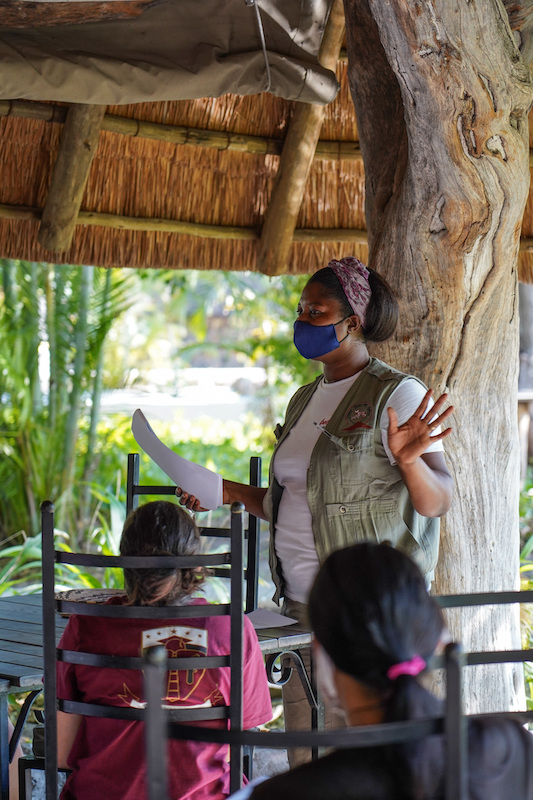
Omenzi Tours and Safaris Founder Gake Tebogo speaks to students
Fancy lodges have been built around Maun to accommodate those visiting Botswana, but similar to mining, tourism isn’t without its pitfalls. Local prices have risen as tourism has increased, putting the burden on locals who already have difficulty making ends meet. So while more jobs and opportunities have cropped up, so have prices, giving Botswana’s government and our students a lot to reflect on as they formulate a picture of how the country should scale moving forward.
Elephant Protection Society
In addition to their chat with Gake on Botswana’s economy, students had a chance to learn about how Botswana’s people live side-by-side with the very creatures that boost the economy through tourism.
Founded in 2019, Oaitse and the Elephants Protection Society have been working to solve the problem of human/wildlife conflict in Botswana’s Okavango Delta region. One of the largest projects they are currently working on is the Buffalo Fence Project, which has already constructed over 30 kilometers of fencing to help avoid unnecessary confrontations and save lives and property.
The lack of drinking water has been pushing elephants towards more populated areas, leading to conflict and children being afraid to go to school for fear of being trampled. Elephants Protection Society teaches techniques that stress non-violent means, such as putting oil and chili pepper around crops and positioning yourself out of the elephant’s view. Oaitse and his team are also educating locals on the dangers of the crocodiles that live in Botswana’s lakes, rivers, and swamps.
Elephants Protection Society is providing an invaluable service to the people of Botswana through their commitment to education. We are grateful to both them and Gake for taking the time to share their insights with our community.
Politics
To learn about Botswana’s political landscape, students visited a traditional central court known as a kgotla, where they met with the senior chief representative and chief representative to the paramount chief (the highest-level political leader in the region).
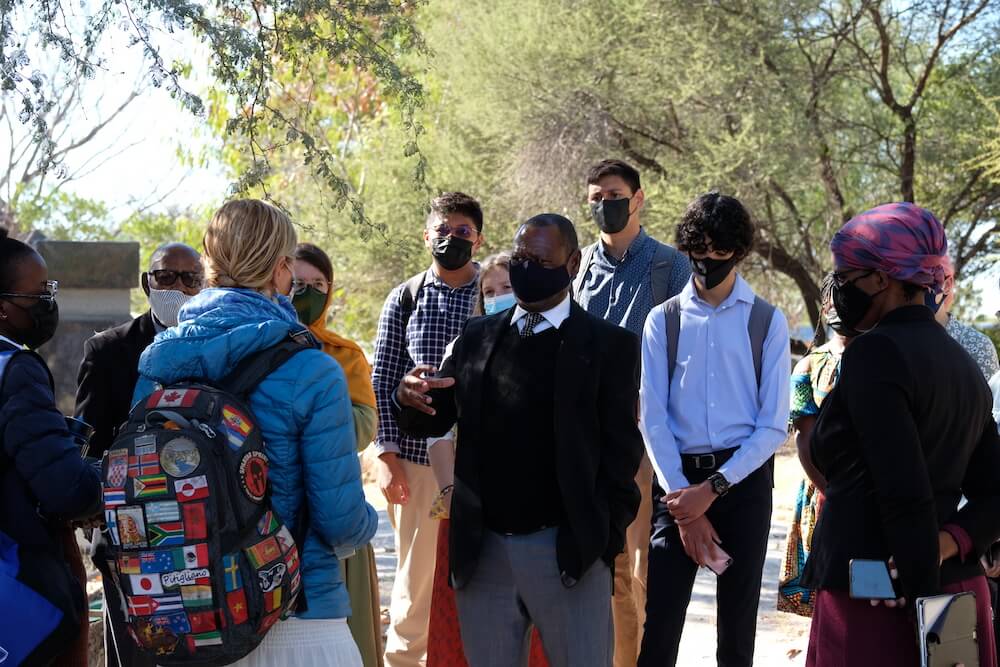
Students converse about politics in Botswana
Through the visit, students learned about Botswana’s political hierarchy and how decisions made at a national level are carried out locally. Government actions are conducted on the local level by the paramount chiefs, who represent Botswana’s eight Tswana tribes. It is their responsibility, and the teams that aid them, to make sure that their region’s needs are met by building social infrastructure such as hospitals, schools, and roads, and providing grain and water to the community.
Like our other explorations of Botswana, the glimpse at the country’s political structure revealed an intersection between modernity and tradition. The country has had multiparty elections since 1965, shortly after it gained its independence, and Transparency International has ranked Botswana as having the lowest perceived corruption in Africa, and they achieve this by electing leadership through democratic elections who abide by and implement anti-corruption laws. And although their power has been diminished since democratic elections were implemented, by having local chiefs provide oversight on the local level, Botswana is able to not lose sight of their culture, traditions, and history as well.
End-of-Term Project Presentations
To conclude the term, students were asked to present a narrative of their own creation using the oral storytelling technique. This narrative presentation represented the project’s final product. It required our students to take themselves out of their comfort zone by sharing their stories before an audience of their peers and members of the local community. You can find three of their summatives below.
Exploring Education Access in Botswana by Seckhen A. and Helena B.
During this project, we had the opportunity to talk to locals about the challenges children from Botswana have to face to go to school. Everything we learned really made us realize how privileged we are to have quality access to education. -Seckhen A. and Helena B.
Seckhen and Helena’s story addresses the issue of students struggling to travel to school and receive an education in Botswana safely — a common problem for those living in remote villages. Going to school comes at a high risk due to the long journeys they have to embark on, all with the intent to access education which is a fundamental human right.
The pair incorporated various aspects of Botswana’s society, culture, and the conversations and teachings they were privileged to receive during this module and hope to make their audience more mindful of how fortunate the developed world is to have easy access to education.
The Story of Akanyang by Viktoria L.
For my summative story, I used the knowledge I acquired from online learning, listening to our guest speakers, and talking to the staff at our camp in Botswana. Through these, I developed an appreciation for Batswana culture and learned a lot about the country’s history and current development. -Viktoria L.
Class of 2022 Student Viktoria’s story was inspired by local Vicki, as when she asked her for some characteristics of a kgori, she told Viktoria a fun fact. In her tribe, when people want to marry the daughter of a kgosi, they have to catch a kgori. So, Viktoria decided to take on the challenge and write a story about a young man wanting to (or his family forcing him to) marry the daughter of a kgosi, but him failing the mission and not being able to marry her. Viktoria received excellent feedback from Bonty and Vicki that helped her shape the story.
In her story, Akanyang tries to catch the kgori by not following the rules or respecting policies to prevent cheating. But, the leopard and elephant (representing the people or the ones somewhat involved but feeling guilty) call him out. They use birds (which represent gossiping) to notify the kgosi (which represent the kgosi, as kgotlas are still major decision-makers and serve the people like municipal governments do in Estonia).
As a result, Akanyang loses his position as a potential husband for Naledi, which represents the possibility of corrupt government members being fired from their position or losing their reputation as politicians in Botswana for not following policies put in place.
The Zebra and the Stone
During our online learning, I was writing on the natural resources of Botswana. I heard a lot about the diamond industry, which seemed very unique to Botswana. Many other parts of Central and Southern Africa with access to rare or valuable materials have had many struggles over their resources, but Botswana is considered one of, if not the most, stable democracy on the continent. I chose to write a short story that could be taken at the surface level as a general fable discouraging the concept of “buying friends.” However, if you look deeper into my story, it is a cautionary tale surrounding the economy of Botswana and its reliance on the diamond trade. -Ignacio C.
During this module, Ignacio took the time to personally talk with many citizens of Maun and the surrounding area, including their guides during CM1’s weXplore in the wilderness north of Sankuyo village. He did this to gain a better understanding of the current reality in the Ngamiland area. Many of the animals in Ignacio’s story are connected with their traditional usage in Botswana storytelling, such as the clever hare, the regal and conniving leopard, and the mysterious and dangerous hyena. Ignacio also included more official meanings, such as the zebra, which is featured on the Batswana coat of arms.
Where Next?
Next up for our CM1 students is a term in Oaxaca, Mexico — we look forward to sharing more with you soon!
